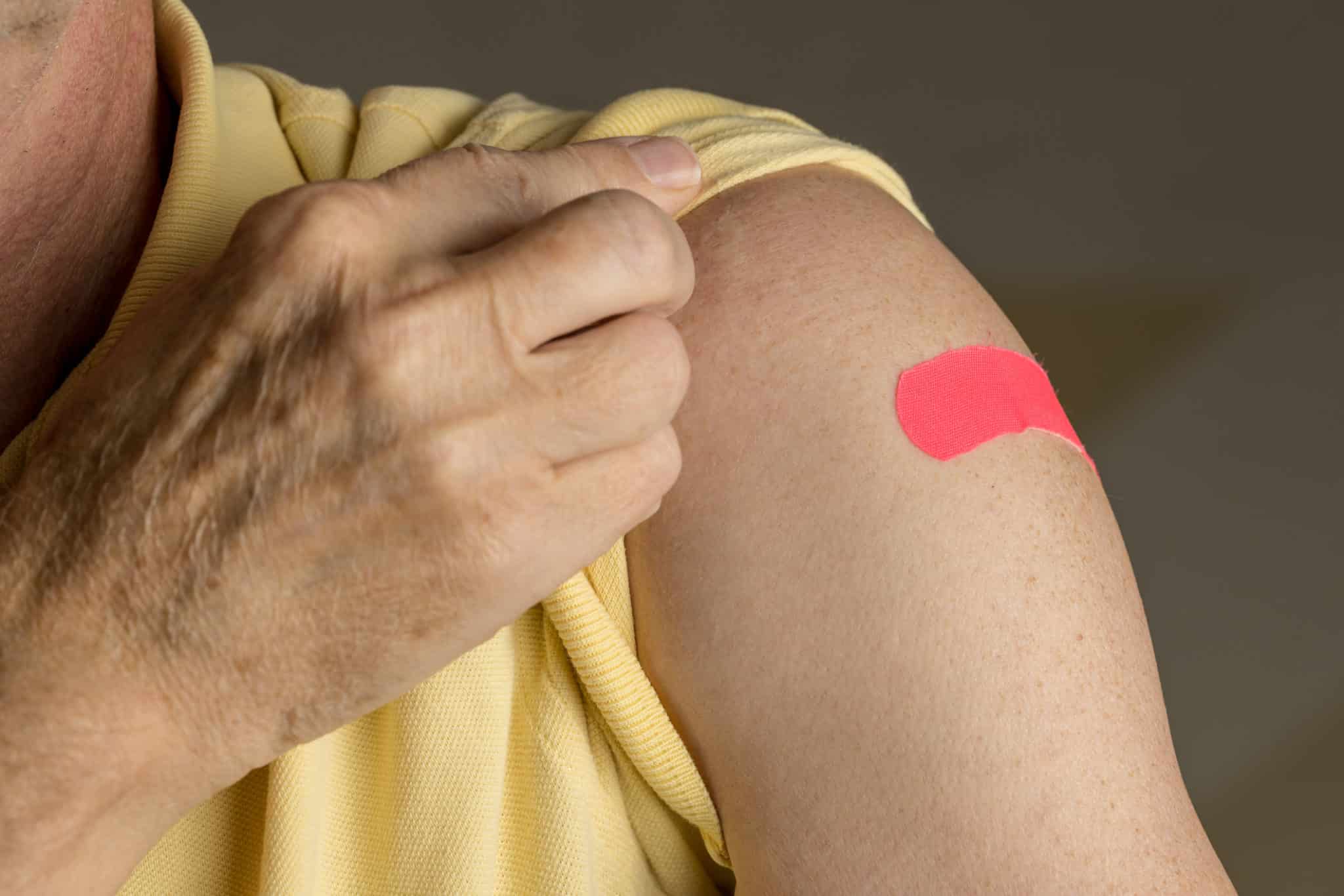3 Immunizations Recommended for Seniors

If there is anything that 2020 has shown the world, it’s how difficult it can be for seniors to fight off infections. As we age, our immune systems become weaker, which is why seniors are more likely to get not only COVID-19, but also diseases like flu, pneumonia, and shingles.
With National Immunization Awareness Month (NIAM) observed in August, and with the toll diseases continue to take on us, it is important to raise awareness about not only the importance of vaccines in preventing serious diseases, but also the correct immunizations that seniors need.
According to the Centers for Disease Control and Prevention’s Recommended Adult Immunization Schedule for 2020 one dose of Pneumococcal conjugate (PCV13), one dose of Pneumococcal polysaccharide vaccine (PPSV23), and the shingles vaccine is recommended for people age 65 and older to help protect them. Here is more information about each of these three vaccines:
Pneumococcal conjugate (PCV13) for pneumococcal disease
Pneumococcal disease is a name for any infection caused by bacteria called Streptococcus pneumoniae, or pneumococcus. Pneumococcal disease is a serious disease that causes much sickness and death. During the 2018-2019 season, the CDC estimates 16.5 million people went to a health care provider for the flu and more than 34,000 people died in the U.S.
It is possible for a person to carry the disease in their throat and not be ill, or to be infected with the bacteria and show no symptoms. Pneumococcal infections can range from ear and sinus infections to pneumonia and bloodstream infections. Those carriers can still spread it, primarily in droplets from their nose or mouth when they breathe, cough, or sneeze. The Pneumococcal conjugate (PCV13) vaccine prevents pneumococcal disease.
What is known about this immunization?
In 2014, the Advisory Committee on Immunization Practices (ACIP) recommended 13-valent pneumococcal conjugate vaccine (PCV13) in series with 23-valent polysaccharide vaccine (PPSV23) for all adults age 65 years and older. A new report showed declines in pneumococcal disease among adults and children. The ACIP changed the recommendation for PCV13 use in adults after reviewing the evidence of its benefits.
They also recommend a routine single dose of PPSV23 for adults age 65 years and above. Shared clinical decision-making is recommended regarding administration of PCV13 to persons in this group who do not have an immunocompromising condition, cerebrospinal fluid leak, or cochlear implant and who have not previously received PCV13. If a senior’s medical professional and caretakers decide that PCV13 should be administered, then PCV13 should be administered first, followed by PPSV23 at least one year later.
Pneumococcal polysaccharide vaccine (PPSV23)
This vaccine protects against serious pneumococcal disease, including meningitis and bloodstream infections. This vaccine is recommended for adults under 65 if they have certain health conditions and for all adults over 65.
The ACIP recommends that all adults age 65 years and older routinely receive one dose of PPSV23. It contains 12 serotypes in common with PCV13 and an additional 11 serotypes for which there are no indirect effects from PCV13 use in children. The additional 11 serotypes account for 32%–37% of invasive pneumococcal disease among adults age 65 years and older. Adults age 65 years and older who received one or more doses of PPSV23 before age 65 years should receive one additional dose of PPSV23 at age 65 years or later, at least five years after the previous PPSV23 dose.
Shingles vaccine for people 50 years and older
Shingles is a viral infection that causes a painful rash. This rash can appear anywhere on your skin but most commonly appears on the sides of the torso. Almost one out of every three people in America will develop shingles during their lifetime, which is why a shingles immunization is also recommended for healthy adults 50 years and older.
If you have not received the PV13, PPSV23 or shingles vaccine, talk to your doctor or other healthcare professional to find out which vaccines are appropriate for you.
Our CCRC Bristol Glen, in Sussex County, New Jersey, will continue to raise awareness during National Immunization Awareness Month. Do your part by asking yourself – and your loved ones – whether they are up-to-date with their immunizations. Contact UMC for more information about our CCRC in Sussex County, and our assisted living communities across New Jersey, today.





